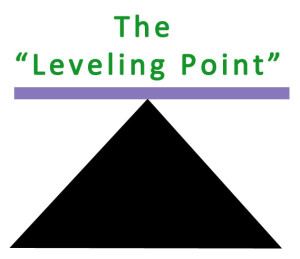
U.S. Senate
See Full Big Line
(D) J. Hickenlooper*
(R) Somebody
80%
20%

Governor
See Full Big Line
(D) Joe Neguse
(D) Phil Weiser
(D) Jena Griswold
60%
60%
40%↓

Att. General
See Full Big Line
(D) M. Dougherty
(D) Alexis King
(D) Brian Mason
40%
40%
30%

Sec. of State
See Full Big Line
(D) George Stern
(D) A. Gonzalez
(R) Sheri Davis
40%
40%
30%

State Treasurer
See Full Big Line
(D) Brianna Titone
(R) Kevin Grantham
(D) Jerry DiTullio
60%
30%
20%

CO-01 (Denver)
See Full Big Line
(D) Diana DeGette*
(R) Somebody
90%
2%

CO-02 (Boulder-ish)
See Full Big Line
(D) Joe Neguse*
(R) Somebody
90%
2%

CO-03 (West & Southern CO)
See Full Big Line
(R) Jeff Hurd*
(D) Somebody
80%
40%

CO-04 (Northeast-ish Colorado)
See Full Big Line
(R) Lauren Boebert*
(D) Somebody
90%
10%

CO-05 (Colorado Springs)
See Full Big Line
(R) Jeff Crank*
(D) Somebody
80%
20%

CO-06 (Aurora)
See Full Big Line
(D) Jason Crow*
(R) Somebody
90%
10%

CO-07 (Jefferson County)
See Full Big Line
(D) B. Pettersen*
(R) Somebody
90%
10%

CO-08 (Northern Colo.)
See Full Big Line
(R) Gabe Evans*
(D) Yadira Caraveo
(D) Joe Salazar
50%
40%
40%

State Senate Majority
See Full Big Line
DEMOCRATS
REPUBLICANS
80%
20%

State House Majority
See Full Big Line
DEMOCRATS
REPUBLICANS
95%
5%
 June 18, 2014 04:10 PM UTC
June 18, 2014 04:10 PM UTC 6 Comments
6 Comments
I believe with saturated airwaves, viewers will essentially tune out all but the most attention-grabbing ads and news reports (TV and newspaper) about the candidates.
Word of mouth from friends and family that you trust will make a big difference, I think.
I hope Andrew is reaching out to community leaders to gain their endorsements so that the community followers will be motivated not only to like Andrew, but to get out the vote and pass along their enthusiasm to their friends and family too.
Some factors tipping the balance towards Romanoff will be
I think you're wrong on #3. Dems pay canvassers much more than Repubs do (but only because Repubs barely bother … to the extent they do field it's all by phone). Also, every campaign manager ever invented will tell you that paid field is MUCH more effective than volunteer, which is usually just for show.
Money is not the most important thing in campaign politics. Votes are.
Votes are allocated by the decisions of voters. Voters make those decisions based on *perceived* differences between the candidates, and by whether or not they vote *at all*. A candidate who can spend $10/voter, and whose opponent doesn't have any money or no comparable amount of money, can use that money to ensure that every voter receives a clearly communicated positive perception of that candidate and an unfavorable impression of the other candidate, and to remind supportive voters to vote. In some districts that still won't be enough, because voters are partisan. No person with "R" after their name would be likely to beat Jared Polis even on the basis of $10/voter worth of unopposed communications–Boulder simply doesn't vote for Republicans. However in competitive districts with about the same number of R voters and D voters, money often matters tremendously.
In competitive districts, money starts mattering a lot less once both sides have a lot of it. If both sides can spend upwards of $10/voter, an extra $1/voter matters a good bit less than that first $10/voter. Plus both sides will be watching what the other says, and trying to catch them saying something arguably offensive, flip-floppy, or false–and so one campaign's spending can sometimes be co-opted to benefit the other campaign. (See Scott Brown, whose efforts to prove he's a "true" NH local are feeding the narrative that he is perceived as a carpet-bagger. Or see Meg Whitman, whose self-funding hurt her because it facilitated a narrative that she was trying to buy the Governor's mansion.) In a race with a real contrast between the candidates, additional money often can't do anything to change voters' perceptions because any effort to undo the basic contrast is too clearly political spin.
Romanoff and Coffman both are looking decently well-funded. (The $10/voter mark is at about $3.5 million for congressional races, assuming about 1/2 of the 710k folks in a congressional district vote.) They both have established views and long voting records that can't be entirely made to go away. Money will still matter, but it won't be the only thing that influences this election.
Let's assume that both sides in the CD6 race will have armies of paid canvassers, because they probably will. Dems will have more volunteer canvassers and phone people. Here's what I think will make the difference: leadership by campaign staff.
What will hurt either campaign is if they start to rely on young, untried poli-sci majors who alienate the volunteers and residents of the district by being snotty, rigid, and high-handed .
It is so rare to find staff who are knowledgeable about politics and organizing, yet still have people skills. Successful campaign staff are aways dedicated and hard-working, obsessive personalities, which is necessary to get the job done. These traits apparently often crowd out kindness, humor, and ability to get along with diverse people, (including more or less educated, older, and younger people.)
OK, I'm done venting. Hopefully, the Romanoff campaign will be selective in hiring good staff, whilethe Coffman side will naturally gravitate to hiring obnoxious a–holes,
I will say this (and only this) — I am very impressed with the professionalism of the Romanoff campaign.